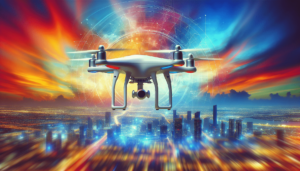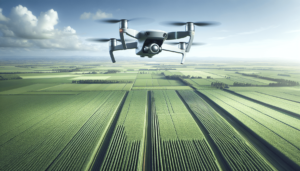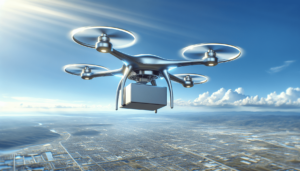Have you ever wondered how small businesses manage to stand out in a crowded market with limited resources? One innovative approach that many small businesses are adopting is the use of drones in their marketing strategies. These high-flying tools offer a unique perspective and have become significantly more accessible, allowing small businesses to leverage their capabilities for competitive advantage. By elevating marketing campaigns—literally and figuratively—drones offer opportunities that were previously reserved for those with hefty budgets.
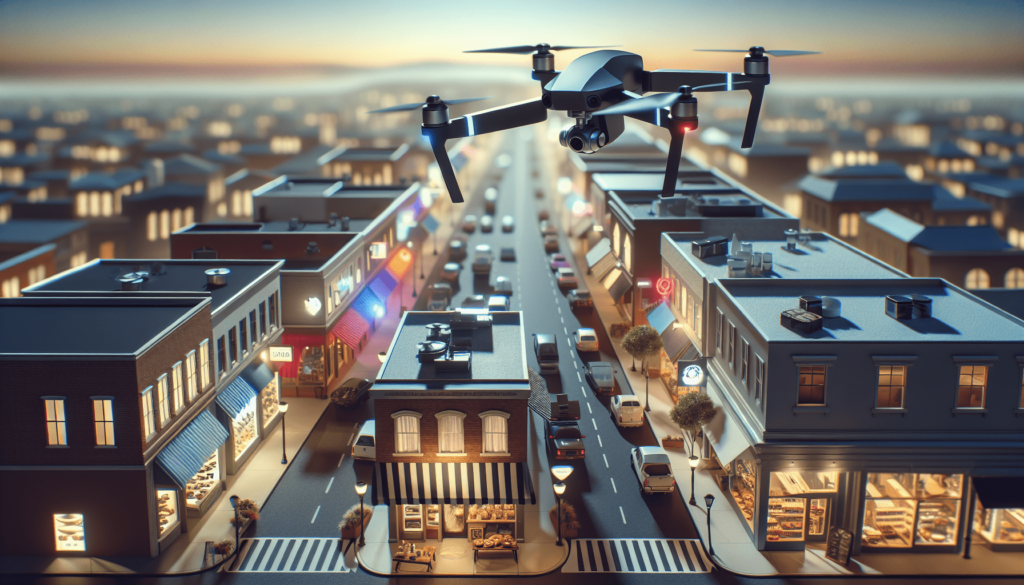
The Rise of Drones in Business
Drones, once considered expensive toys or specialized equipment for filmmakers, have now found a prominent place in the business world. With advancements in technology, drones have become more affordable, user-friendly, and versatile. They offer a cost-effective solution for businesses looking to enhance their marketing strategies without overspending.
Why Drones?
Drones offer something traditional marketing tools don’t: an aerial view. This unique perspective provides businesses with a fresh way to present their products and services. Imagine showcasing a beautifully landscaped property from above or highlighting the scale and setting of an event. The visual impact is immediate and memorable.
Accessibility and Affordability
The price of drones has dropped significantly, making them accessible to small businesses. Once reserved for Hollywood filmmakers or large corporations, high-quality drones can now be acquired at a fraction of the cost. Additionally, their ease of use ensures that even businesses without a lot of technical expertise can operate them effectively.
Key Benefits of Drone Marketing
Small businesses find drones appealing not just for their novelty, but for the tangible benefits they bring to marketing initiatives.
Enhanced Visual Content
Drones provide the ability to capture stunning visuals from unique angles. These visuals can transform advertising content, making it more appealing and engaging. Aerial shots can make a cityscape more dramatic or a rural setting more serene, depending on the business’s needs.
Cost Efficiency
While traditional advertising methods can be costly, using drones offers a cost-effective alternative. Instead of hiring a full team of videographers, businesses can achieve similar results with just a drone and a skilled operator. This efficiency is particularly beneficial for small businesses operating on a tight budget.
Increased Engagement
Content shot with drones tends to be more engaging. Social media platforms, in particular, thrive on visual content, and drone footage often garners more likes, shares, and comments. This increased interaction can boost brand visibility and customer engagement, providing small businesses with an edge in marketing.
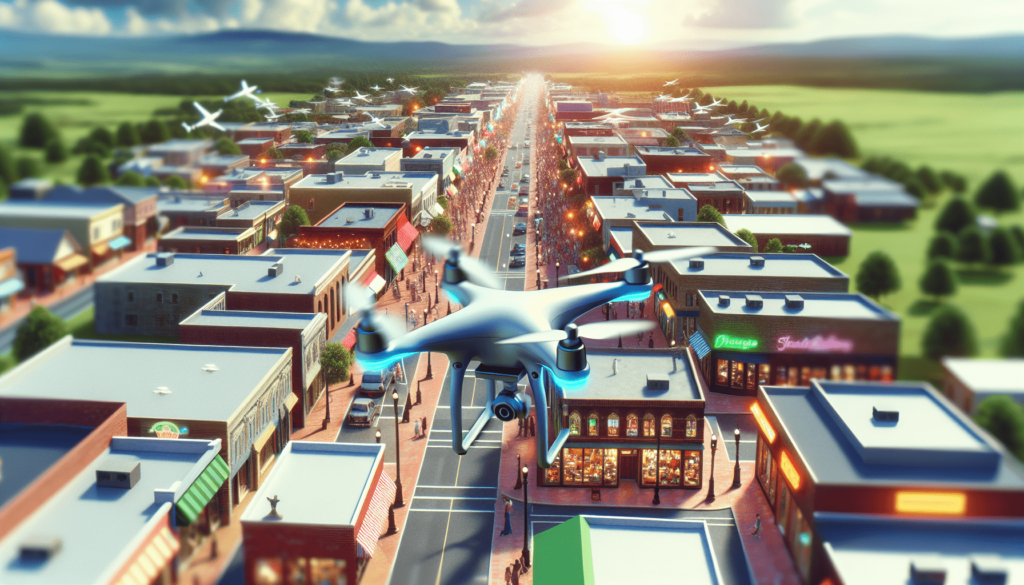
Applications of Drones in Small Business Marketing
Let us explore some practical applications where drones can significantly impact small business marketing efforts.
Real Estate
In real estate, location and aesthetics are everything. Drones allow agents to provide panoramic views of properties, offering potential buyers a comprehensive look at the site and its surroundings. This approach generates more interest and can significantly speed up sales.
| Application | Benefit |
|---|---|
| Aerial Views | Superior property showcasing |
| Virtual Tours | Enhanced experience without physical visit |
Events and Promotions
For businesses that host events, drones are invaluable. They capture the scale and atmosphere of the event, which can then be used in future promotions. Whether it’s capturing the energy of a concert or the intimacy of a wedding, drones offer dynamic visuals that resonate with audiences.
Agricultural Promotion
For small businesses in agriculture, drones provide a way to monitor crops and showcase farming practices. This not only aids in efficient farm management but also allows businesses to educate their customers and promote sustainable farming practices.
Tourism and Hospitality
In the tourism industry, drones elevate marketing efforts by providing breathtaking views of destinations. Hotels, resorts, and tourist attractions use drones to capture the essence of their offerings, enticing more visitors with sweeping, captivating visuals.
Navigating Legalities and Regulatory Considerations
While drones offer extensive advantages, businesses must navigate legal and regulatory frameworks to operate them responsibly.
Understanding Regulations
Most countries have strict regulations governing the use of drones, particularly for commercial purposes. It’s crucial for businesses to understand and comply with these regulations to avoid fines or legal issues.
Licensing and Permissions
Operators often need to obtain specific licenses, and in some instances, permissions for particular types of shoots. This generally involves technical training and demonstrating drone flying skills under controlled conditions.
Privacy Concerns
Drones also bring privacy concerns. Capturing footage that inadvertently includes private property or individuals requires careful consideration. Businesses must respect privacy laws to prevent potential legal challenges.
Overcoming Challenges in Drone Marketing
Despite their benefits, the use of drones in marketing is not without challenges, particularly for small businesses.
Technical Challenges
Operating drones effectively requires some technical know-how. Small businesses may need to invest in training or hire skilled operators to ensure they make the most out of their drone technology.
Weather Dependency
Drones are heavily dependent on suitable weather conditions. Rain, high winds, or extreme temperatures can hinder drone operations. Businesses relying on drones need contingency plans to mitigate weather-related delays.
Budget Constraints
Despite the falling costs of drones, the initial investment can still be significant for a small business. Some may opt to rent drones instead, which can provide flexibility and reduce expenses.
Future of Drones in Small Business Marketing
Looking forward, the role of drones is set to expand as technology continues to progress. Innovations in drone technology promise even greater accessibility and functionality.
Continued Technological Advancements
With ongoing advancements, drones are becoming lighter, faster, and equipped with features like better image stabilization and superior camera quality. These improvements will further enhance their value in marketing, making them more appealing.
Integration with AI
Future drones may incorporate AI to analyze footage in real-time, providing businesses with actionable insights into consumer behavior or the success of marketing campaigns. This integration could provide small businesses with meaningful data that large corporations typically enjoy.
Expansion Across Industries
Currently, industries like real estate and events are the primary beneficiaries of drone marketing, but the potential extends to sectors such as retail, healthcare, and even education. As proficiency with drone technology spreads, expect to see innovation across diverse fields.
Conclusion
Integrating drones into marketing strategies offers small businesses a distinctive competitive edge. The combination of stunning visuals, enhanced engagement, and cost efficiency makes drones an attractive tool for those looking to maximize their impact in a crowded market.
While challenges such as regulatory complexities and technical requirements exist, the benefits often outweigh these obstacles. As technology and regulations continue to evolve, drones are likely to solidify their position as a mainstay in the marketing toolkit of small businesses. Through creativity and a strategic approach, small businesses can soar above their competition, offering unique experiences that resonate with their audience.
In utilizing drones, small businesses embody innovation, demonstrating that with the right tools, even modest ventures can achieve impressive marketing outcomes.
